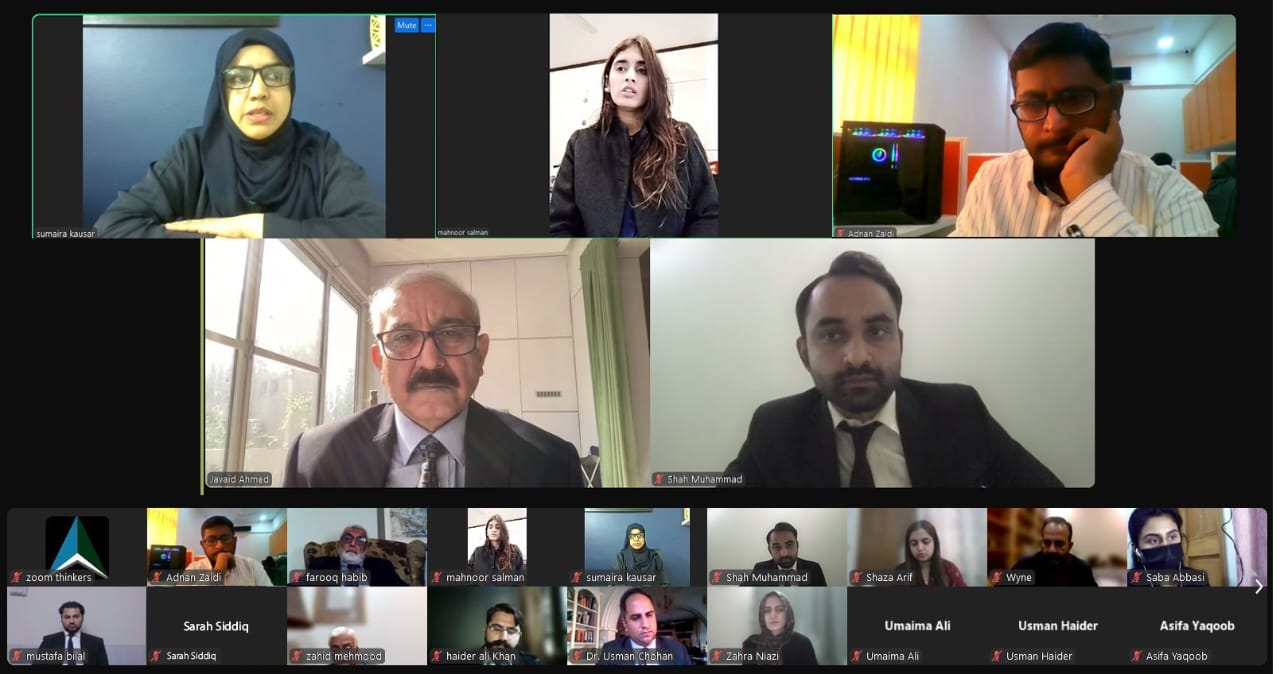ISLAMABAD ( WNAM REPORT): The Centre for Aerospace & Security Studies (CASS), Islamabad, conducted a webinar on ‘Bridging the Global Digital Divide: Access, Equity and Empowerment.’ The session included speakers Dr Sumaira Kausar, Director Centre of Excellence of AI, Bahria University, Islamabad; Ms Mahnoor Salman, Senior AI Engineer & Co-founder, Atomcamp; and Mr Adnan Zaidi, CEO, Proxima AI. Shah Muhammad, Research Assistant at CASS moderated the proceedings and President CASS Air Marshal Javaid Ahmed (Retd) delivered the concluding remarks.
Speaking on the topic of ‘Emerging Technologies and Academic R&D’, Dr Sumaira Kausar highlighted the global disparities in adopting and commercializing emerging technologies, largely driven by geographical gaps. She noted that most digital infrastructure is concentrated in a few advanced economies, leaving many low-income countries in the early stages of AI adoption readiness. Dr Kausar explained the six stages of AI adoption, from awareness to sustainability, placing Pakistan in the exploration and experimentation phase. She emphasised that emerging technologies, including AI and quantum computing, will shape future global superpowers, urging Pakistan to prioritise these areas to close the digital divide. She called for promoting AI literacy, reskilling the workforce, and establishing ethical guidelines and regulatory frameworks to accelerate adoption. ‘Education and accessibility are essential for quantum inclusion,’ she said, stressing the need for strong government commitment to drive technological progress.
On the subject of ‘Digital Literacy and Tech Ecosystems’, Ms Mahnoor Salman emphasised the need for global cooperation to address the technological divide, advocating for technology transfer and the ethical use of AI. She highlighted the importance of Pakistan’s participation in global forums like the International Telecommunication Union (ITU) to align national policies with global best practices. Ms Salman called for a holistic approach to promoting digital literacy in Pakistan and the role of Public-Private Partnerships in expanding financial access. She also stressed the need for policies to empower freelancers through skills development and vocational training tailored to market demands.
Mr Adnan Zaidi, speaking on ‘Big Tech and Corporate R&D’, highlighted how global tech giants can now influence national policies through lobbying, information control, government partnerships, and economic power. He warned that smaller nations face challenges like economic dependency, regulatory struggles, and threats to digital sovereignty. He also talked about the risks of digital colonialism, including data exploitation, cultural erosion, and inequitable access. To mitigate these, he recommended promoting local innovation, developing robust regulatory frameworks and focus on education, entrepreneurship and international collaboration as key priorities.
Air Marshal Javaid Ahmed (Retd), President CASS, Islamabad concluded the webinar by underscoring the need for Pakistan to address structural and institutional challenges in digital inclusion. He highlighted the importance of fostering indigenous Research and Development (R&D), digital literacy, and entrepreneurship to reduce reliance on foreign technologies and funding. President CASS urged that it was important for Pakistan to learn from global digital models while tailoring solutions to its unique needs. He also called for public-private partnerships to expand digital education and create an inclusive tech ecosystem.
11


